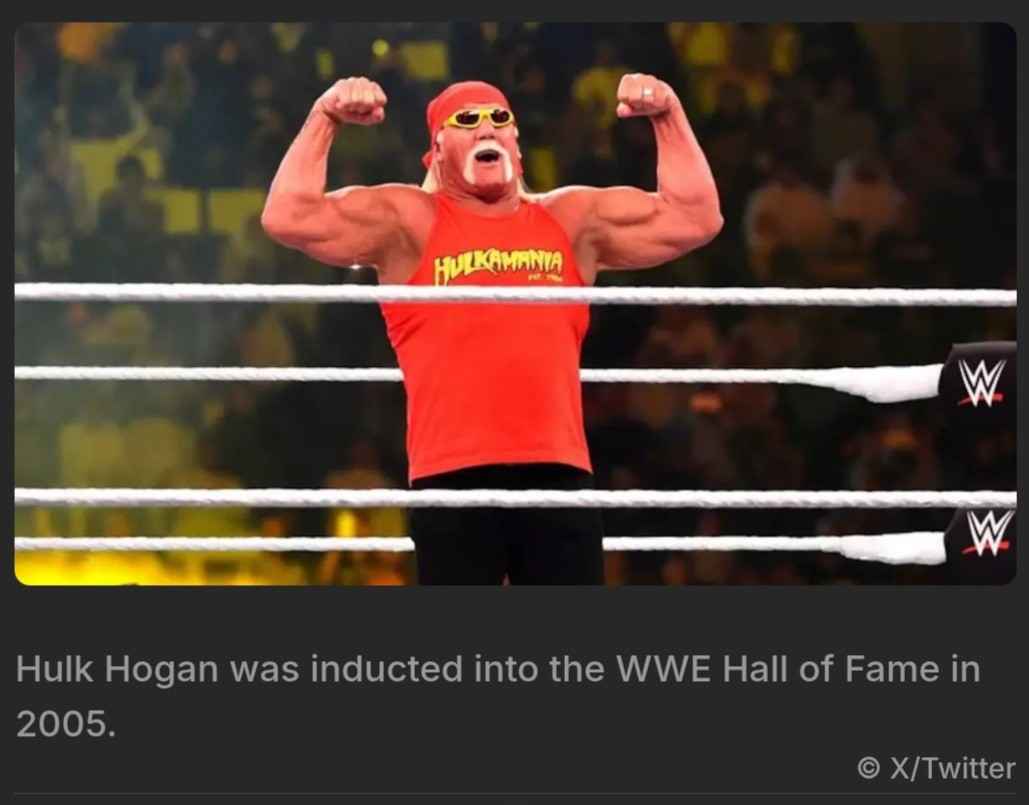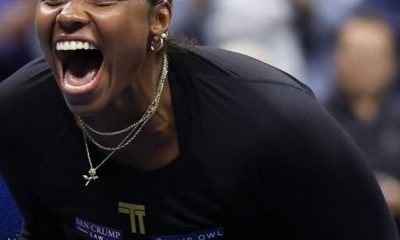
For WWE fans and wrestling aficionados around the world, the death of Hulk Hogan, a towering icon in professional wrestling, has come as a shock. He passed away at the age of 71 at his home in Clearwater, Florida. His death was confirmed on Thursday by Florida police and WWE.
WWE posted a note on X saying it was saddened to learn the WWE Hall of Famer had passed away.
“WWE is saddened to learn WWE Hall of Famer Hulk Hogan has passed away. One of pop culture’s most recognisable figures, Hogan helped WWE achieve global recognition in the 1980s. WWE extends its condolences to Hogan’s family, friends, and fans,” it posted.
According to reports he had just gone through neck surgery and was recovering when he suffered a heart attack. Paramedics were called, but sadly, he could not be revived. Hulk Hogan had undergone a major heart operation in June, US Weekly reported.
— Vince McMahon (@VinceMcMahon) July 24, 2025
Though the world knew him as Hulk Hogan, his real name was Terry Gene Bollea, born on August 11, 1953. Raised in Port Tampa, Florida, Hogan developed a passion for wrestling in his teenage years. That passion eventually led him into the professional wrestling world in August 1977, where his powerful presence and larger-than-life persona earned him the now-legendary nickname, “Hulk.” It wasn’t long before he catapulted into the spotlight during the 1980s, becoming one of the most iconic and celebrated figures in the history of professional wrestling.
With his bandana, muscles, handlebar mustache, and booming voice, Hogan became a household name not only in the USA but in India also among youngsters who were head over heel in love with him. His catchphrases like “Whatcha gonna do, brother?” were loved by fans around the world, reported People.
In 1983, he joined the World Wrestling Federation (WWF), now known as WWE, and rapidly rose through the ranks, becoming the face of the company and a symbol of wrestling’s golden era.
He became the face of the company and helped make wrestling more popular than ever. One of his most famous moments was when he lifted and slammed the 520-pound André the Giant at WrestleMania III in 1987, a moment still remembered by fans.
Hogan won the WWE Championship six times and also won the Royal Rumble twice. In the 1990s, he joined WCW, where he changed his image from hero to villain and co-founded the New World Order (nWo), a group that revolutionised wrestling
Outside the ring, Hogan acted in movies like Rocky III, Mr. Nanny, and Suburban Commando. He also starred in a reality show, Hogan Knows Best, which followed his life with his wife and kids
His personal life had challenges. Over the years, Hogan had over 25 surgeries for his back, hips, knees, and neck. In June 2025, there were rumours that he was dying, but his wife denied them and said he was recovering from surgery. “I’ve had like 25 surgeries in the last ten years — 10 of them were back surgeries,” the 12-time world champion explained. “I’ve had 10 back surgeries, both knees and both hips replaced, shoulders — everything.”
He is survived by his wife Sky Daily, his two children Brooke and Nick, and former wives Linda Hogan and Jennifer McDaniel.
Even though his life had tough moments, Hulk Hogan left a major mark on the world of wrestling. He inspired fans everywhere and helped make professional wrestling a worldwide sensation. For many, he will always be remembered as one of the greatest icons in sports entertainment. Hulk Hogan’s influence both inside the ring and beyond will resonate for generations, securing his place as a cornerstone of wrestling history.
Hulk Hogan: A wrestling icon who transcended the ring
Hulk Hogan was more than a wrestler. He was a cultural phenomenon. His unmatched charisma and connection with fans helped transform professional wrestling into mainstream entertainment.
In the ring, Hogan’s showmanship turned matches into events, and his iconic crowd interactions created unforgettable moments. His role in wrestling’s golden era during the ‘80s and ‘90s brought global attention to WWE, making him the face of the industry for years.
His dramatic shift to a villainous role in WCW’s New World Order storyline reshaped his legacy and showcased his ability to evolve with the times. Off the mat, his openness about health struggles sparked important conversations about the physical demands of wrestling.
Hogan’s influence is still felt today through the wrestlers he inspired, the fans he captivated, and the moments that defined a generation. His legacy remains a cornerstone of wrestling history.
By the early 1990s, Hogan’s babyface hero act began to wear thin. Wrestling fans, particularly older audiences, were growing weary of the overly patriotic, invincible character. Hogan departed the WWF in 1993 and joined WCW in 1994. Initially, he continued his traditional persona, but it failed to ignite fan enthusiasm. Then came one of the most pivotal moments in wrestling history.
In 1996, Hogan turned heel (villain) and formed the New World Order (nWo) alongside Scott Hall and Kevin Nash. This shocking turn revitalised his career and WCW’s fortunes. The nWo storyline blurred the lines between reality and fiction, and Hogan’s new persona, “Hollywood Hogan” showed his range as a performer. He embraced arrogance, manipulation, and showbiz flair, in stark contrast to the all-American hero of the past.
The late 1990s saw Hogan once again atop the industry, though this time as the villain fans loved to hate. His role in the Monday Night Wars (a ratings battle between WWF’s Raw and WCW’s Nitro) proved instrumental in making wrestling mainstream again. Hogan was not just a wrestler; he was a narrative device — a character that adapted to shifting cultural tastes.
Despite a career filled with accolades and reinventions, Hogan’s public image would eventually face significant challenges. In addition to the scandals, Hogan’s physical condition deteriorated due to years of wear-and-tear in the ring.
Comparing Hulk Hogan with other wrestling legends reveals both his unique place in history and the cyclical nature of fame in the industry.
In wrestling and in entertainment, few figures have run as wild, or left as lasting an imprint, as Hulk Hogan.











